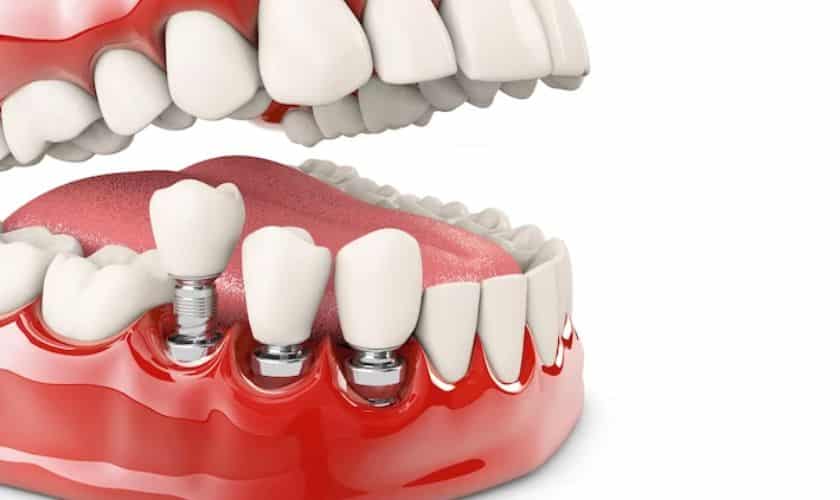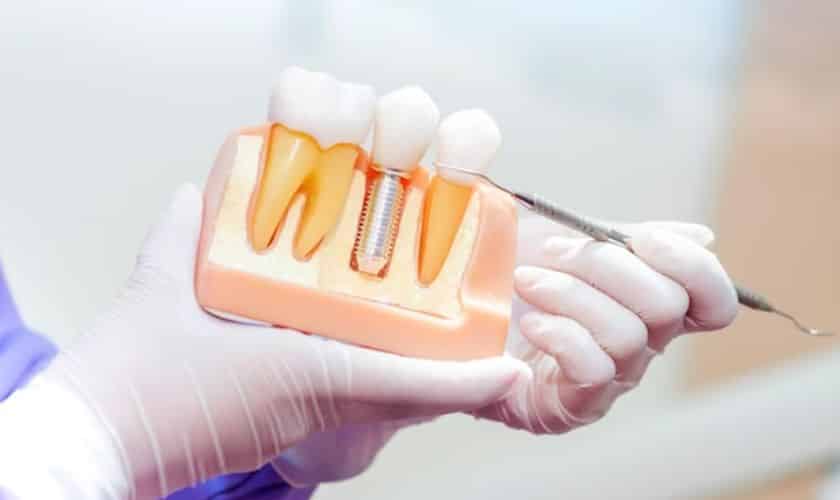Exploring the Benefits of Dental Implants for Your Oral Health and Appearance
Are you tired of hiding your smile because of missing teeth? Then, dental implants may be the solution for you! Not only do they improve the appearance of your smile, but they also have numerous benefits for your oral health. So say goodbye to dentures and hello to a permanent, natural-looking solution. In this blog post, we will explore all the advantages of dental implants and why they are worth considering. So get ready to show off those pearly whites again!
What are Dental Implants?
Dental implants are artificial teeth that are surgically placed into the jawbone. They provide a reliable, long-lasting solution for replacing missing teeth. They can provide many benefits for your oral health and appearance.
They also look natural in the mouth. It is because the metal frame of the implant is blended with the surrounding bone so that it appears as if your original tooth was replaced. It allows you to maintain the same smile you had before your tooth loss, regardless of whether or not you have dental insurance or financing for dental procedures.
If you are considering dental implants, be sure to speak with a qualified dentist about your options. In addition, you may be eligible for financial assistance through programs like Medicaid or Medicare, depending on your income and other factors.

Source: Freepik
Types of Dental Implants
There are a variety of dental implants, each with its benefits and drawbacks. Here are the most common types:
1. Stainless steel dental implants: These are the most popular type of dental implant because they’re durable, long-lasting, and look natural. They’re also less expensive than other types of implants. However, stainless steel implants tend to be more difficult to remove than other types of implants, and they may require additional surgery to replace them if they begin to weaken or crumble.
2. Titanium dental implants: Titanium is a very strong metal often used in medical devices such as hip and knee replacements. It’s also been used in these implants because it’s durable and doesn’t rust like other metals. Titanium implants are less expensive than stainless steel implants, but they may require slightly longer healing before you can resume your regular activities.
3. Composite resin dental implant materials combine different plastics to create a strong bond. It makes composite resin dental implant materials relatively easy to remove and replace if necessary, but they may not look as natural as some other materials options.
4. Natural tooth replacement materials: If you have lost one or more teeth due to age or disease, you may be able to replace them with a custom-made denture from a dentist or oral surgeon. This approach is usually more expensive than replacing teeth with traditional tooth-replacement procedures, but it can
How do Dental Implants Work?
Dental implants are a popular and effective solution for replacing missing teeth. They are designed to function and resemble natural teeth, providing a stable and long-lasting solution. Here’s how dental implants work:
- Evaluation and Planning: The process begins with a comprehensive dental examination and evaluation. Your dentist or oral surgeon will assess your oral health, including the condition of your jawbone and gums. They will take X-rays, CT scans, or other imaging techniques to determine the ideal placement of the implant.
- Placement of the Implant: The dental implant consists of a small titanium post that is surgically placed into the jawbone. This post serves as the artificial tooth root. The procedure is usually performed under local anesthesia to ensure comfort. In some cases, sedation may be used for anxious patients.
- Osseointegration: After the implant is placed, a process called osseointegration occurs. It involves the jawbone naturally fusing with the titanium post over several months. This integration creates a stable and secure foundation for the artificial tooth.
- Abutment Placement: Once osseointegration is complete, a connector called an abutment is attached to the top of the implant. The abutment protrudes from the gumline and provides support for the artificial tooth or crown.
- Restoration: After the gums have healed, an impression of your teeth is taken to create a custom-made artificial tooth. This prosthetic tooth, called a dental crown, is designed to match the color, shape, and size of your natural teeth, ensuring a seamless blend with your smile. The crown is then attached to the abutment, completing the dental implant process.
What are the Benefits of Dental Implants?
These implants are a fantastic option for people looking to improve their oral health and appearance. They offer many benefits that can make a big difference in your life.
Here are some of the most important benefits:
1. Dental implant stability. They are extremely stable and will not move or shift over time. It is great news if you have concerns about your teeth moving around or being uncomfortable.
2. Increased tooth strength and bone density. They increase the strength and density of your teeth, which can help them to stay strong and healthy for longer periods. It is especially beneficial if you have concerns about your teeth deteriorating due to age or other factors.
3. Improved chewing and swallowing abilities. Because they improve the strength and stability of your teeth, they can also help improve your chewing and swallowing abilities. As a result, it can make it easier to enjoy foods you might find difficult to eat before (like hard candy or crunchy fruits).
4. Increased confidence and self-esteem. Anyone who has had dental work done knows just how much confidence it can give you – especially when it improves the look of your smile! Having these implants can add even more value to your smile, making you feel even more confident than before.
5. Reduced anxiety and stress levels. Many people struggle with anxiety and stress due to various reasons, but having dentistry done can be particularly
What should you do if you have a dental implant?
If you are considering these implants for your oral health and appearance, there are a few things you should consider first. First, the dentist will need to look at your teeth and discuss the best options for these implants with you.
Generally, two types of such implants can be used in the mouth: single-tooth replacement implants, and single-tooth restoration implants. All of these types of implants have their benefits and drawbacks, so choosing the type best suited for your situation is important.
- Single-tooth replacement implants are the most common because they are the least invasive option. They consist of a metal post inserted into the jawbone alongside a matching titanium screw. Over time, the implant will bond to the bone around it, creating a stable foundation for teeth that can be replaced later. This implant is usually suitable for patients who only need one or two teeth replaced, as it does not create a full denture replacement.
- Single-tooth restoration implants are similar to single-tooth replacement implants but feature an additional layer of titanium around the screw. This extra protection makes them more durable and allows them to hold more teeth than a standard single-tooth replacement implant. They are usually used when patients need multiple teeth replaced or when the original teeth have been damaged beyond repair.
Source: TMJ4 News
Dental implants are one of the most popular treatments dentists offer their patients today. They provide a natural-looking, long-lasting solution for replacing missing teeth and can enhance your smile dramatically. If you’re considering them for yourself or a loved one, read on for some important information about the procedure and its many benefits. You’ll be surprised by how much improved your oral health and appearance can be when an experienced dentist performs them. In case you have any further queries about Dental Implants feel free to contact your dentist!




